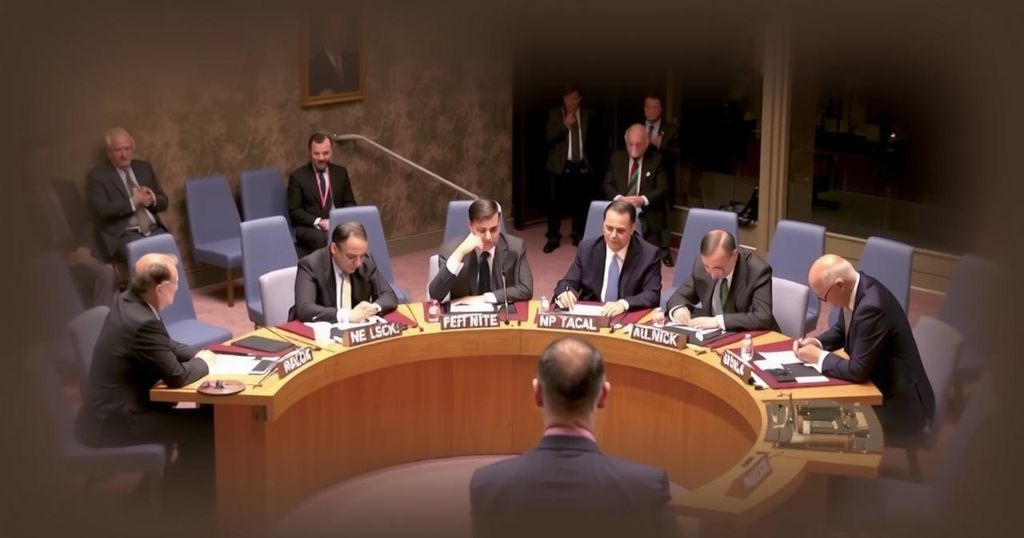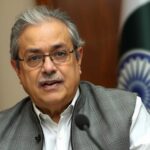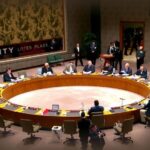Conflicts
Politics
AFGHANISTAN, AS, ASIA, ASIM IFTIKHAR AHMED, INDIA, INFORMATION TECHNOLOGY, INTERNATIONAL RELATIONS, ISLAM, ISLAMABAD, ISLAMIC STATE, JAMMU, MIDDLE EAST, NORTH AMERICA, PAKISTAN, PANAMA, SECURITY COUNCIL, TEHREEK - E - TALIBAN PAKISTAN, TERRORISM, UN SECURITY COUNCIL, UNITED NATIONS SECURITY COUNCIL, WOMEN'S RIGHTS
Clara Montgomery
Pakistan Commences Two-Year Term on United Nations Security Council
Pakistan has begun its two-year term as a non-permanent member of the UN Security Council, having been elected to represent the Asia-Pacific region. The country aims to address security concerns, particularly regarding terrorism associated with Afghanistan, while leveraging its influence within the Council to promote its national interests.
Pakistan has officially commenced its two-year tenure as a non-permanent member of the United Nations Security Council (UNSC). Elected in June of the previous year to represent the Asia-Pacific region, Pakistan succeeded Japan and began active participation on January 1, 2023. On January 2, the UNSC held a ceremonial event during which the flags of Pakistan, Denmark, Greece, Somalia, and Panama were raised, marking their membership as non-permanent members. Notably, Asim Iftikhar Ahmed, the Additional Permanent Representative of Pakistan to the UN, represented the nation at this ceremony.
This marks the eighth instance of Pakistan’s membership in the UNSC, and the engagement offers significant strategic advantages. Pakistan will now partake in the Islamic State and Al-Qaeda Sanctions Committee, which is tasked with identifying and sanctioning individuals and groups affiliated with these terrorist organizations. According to Pakistan’s Dawn newspaper, this committee will provide an important platform for Pakistan to address ongoing cross-border terrorist activities emanating from Afghanistan, particularly those linked to the Islamic State and al-Qaeda.
Moreover, Pakistan’s position on the UNSC will enhance its ability to influence discussions and set the agenda on issues of significant concern, particularly the terrorist threats posed by the Tehreek-e-Taliban Pakistan (TTP) and potential geopolitical maneuvers regarding India’s claims over Jammu and Kashmir. Pakistan may also leverage this role to exert diplomatic pressure on the Afghan Taliban concerning their governance and its implications for regional security. Pakistan’s term as a non-permanent member will conclude on December 31, 2026.
The non-permanent membership of Pakistan in the UNSC is a significant milestone in the country’s diplomatic endeavors. This role allows Pakistan to engage in multilateral discussions on global security issues, providing a platform to advocate for its national interests and regional stability. The UNSC’s focus on terrorism and security provides an avenue for Pakistan to address concerns regarding cross-border terrorism and the evolving situation in Afghanistan, thereby aiming to enhance its international standing.
In summary, Pakistan’s induction as a non-permanent member of the UN Security Council signifies an important phase in its foreign policy, offering a platform to engage in critical global discussions. This membership allows Pakistan to address issues of terrorism and regional security, particularly in relation to Afghanistan and India. By leveraging this role, Pakistan seeks to gain influence within the international community and improve its diplomatic relationships.
Original Source: www.afintl.com








Post Comment